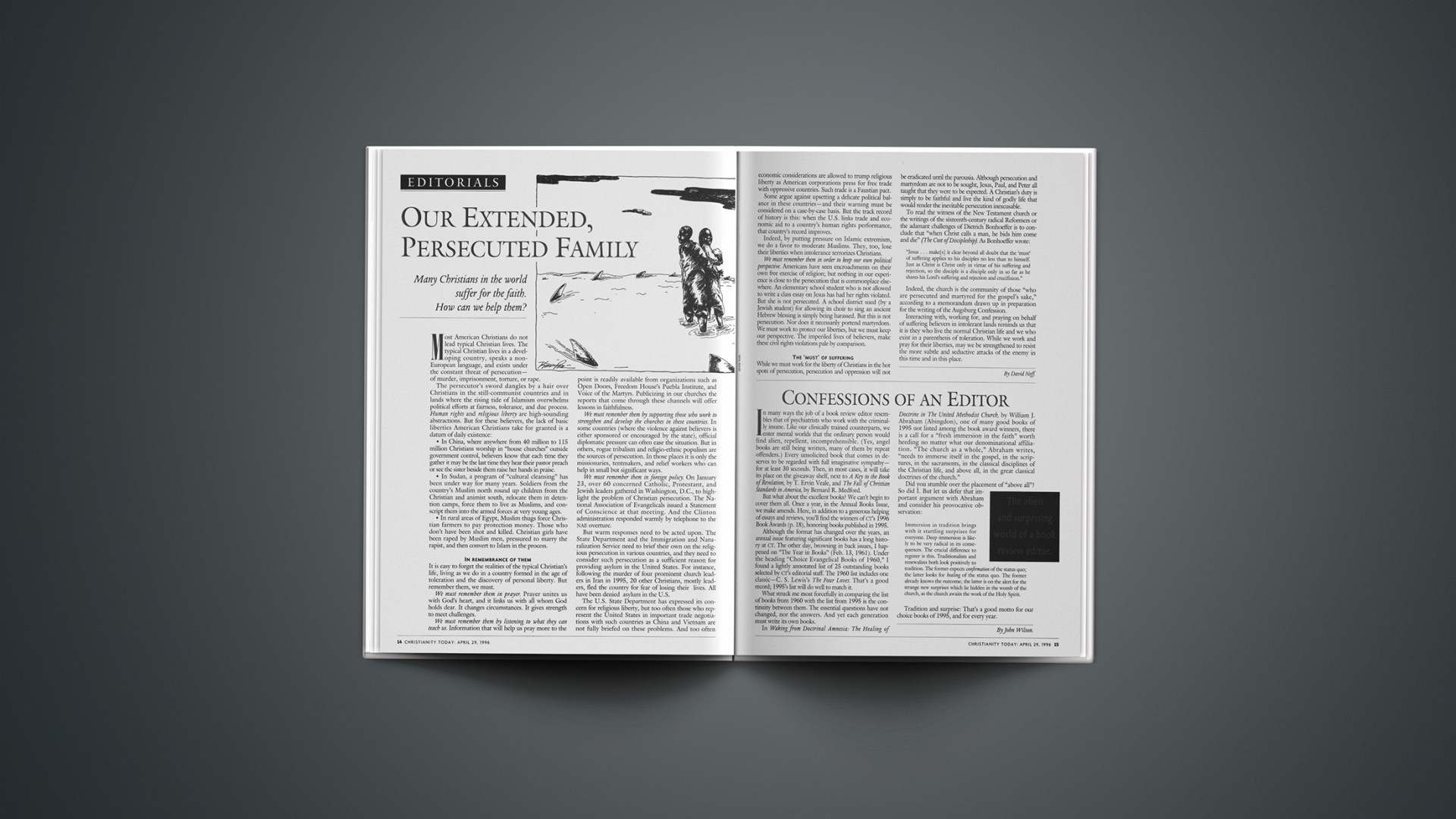In many ways the job of a book review editor resembles that of psychiatrists who work with the criminally insane. Like our clinically trained counterparts, we enter mental worlds that the ordinary person would find alien, repellent, incomprehensible. (Yes, angel books are still being written, many of them by repeat offenders.) Every unsolicited book that comes in deserves to be regarded with full imaginative sympathy–for at least 30 seconds. Then, in most cases, it will take its place on the giveaway shelf, next to “A Key to the Book of Revelation,” by T. Ervin Veale, and “The Fall of Christian Standards in America,” by Bernard R. Medford.
But what about the excellent books? We can’t begin to cover them all. Once a year, in the Annual Books Issue, we make amends. Here, in addition to a generous helping of essays and reviews, you’ll find the winners of CT’s 1996 Book Awards (in this issue), honoring books published in 1995.
Although the format has changed over the years, an annual issue featuring significant books has a long history at CT. The other day, browsing in back issues, I happened on “The Year in Books” (Feb. 13, 1961). Under the heading “Choice Evangelical Books of 1960,” I found a lightly annotated list of 25 outstanding books selected by CT’s editorial staff. The 1960 list includes one classic–C. S. Lewis’s “The Four Loves.” That’s a good record; 1995’s list will do well to match it.
What struck me most forcefully in comparing the list of books from 1960 with the list from 1995 is the continuity between them. The essential questions have not changed, nor the answers. And yet each generation must write its own books.
In “Waking from Doctrinal Amnesia: The Healing of Doctrine in The United Methodist Church,” by William J. Abraham (Abingdon), one of many good books of 1995 not listed among the book award winners, there is a call for a “fresh immersion in the faith” worth heeding no matter what our denominational affiliation. “The church as a whole,” Abraham writes, “needs to immerse itself in the gospel, in the scriptures, in the sacraments, in the classical disciplines of the Christian life, and above all, in the great classical doctrines of the church.”
Did you stumble over the placement of “above all”? So did I. But let us defer that important argument with Abraham and consider his provocative observation:
Immersion in tradition brings with it startling surprises for everyone. Deep immersion is likely to be very radical in its consequences. The crucial difference to register is this. Traditionalists and renewalists both look positively to tradition. The former expects confirmation of the status quo; the latter looks for healing of the status quo. The former already knows the outcome; the latter is on the alert for the strange new surprises which lie hidden in the womb of the church, as the church awaits the work of the Holy Spirit.
Tradition and surprise: That’s a good motto for our choice books of 1995, and for every year.
Copyright © 1996 Christianity Today, Inc./CHRISTIANITY TODAY Magazine










